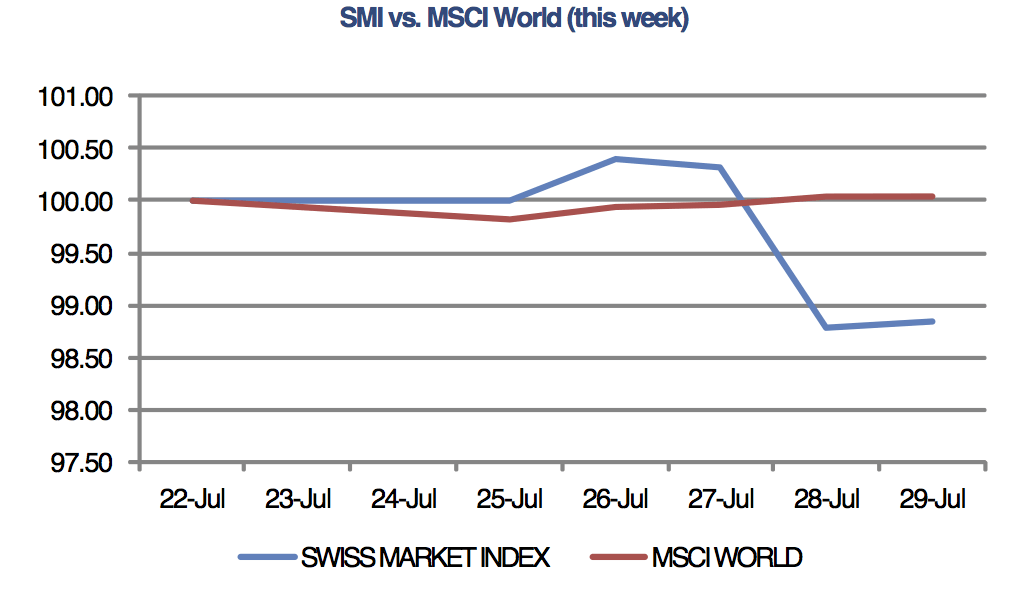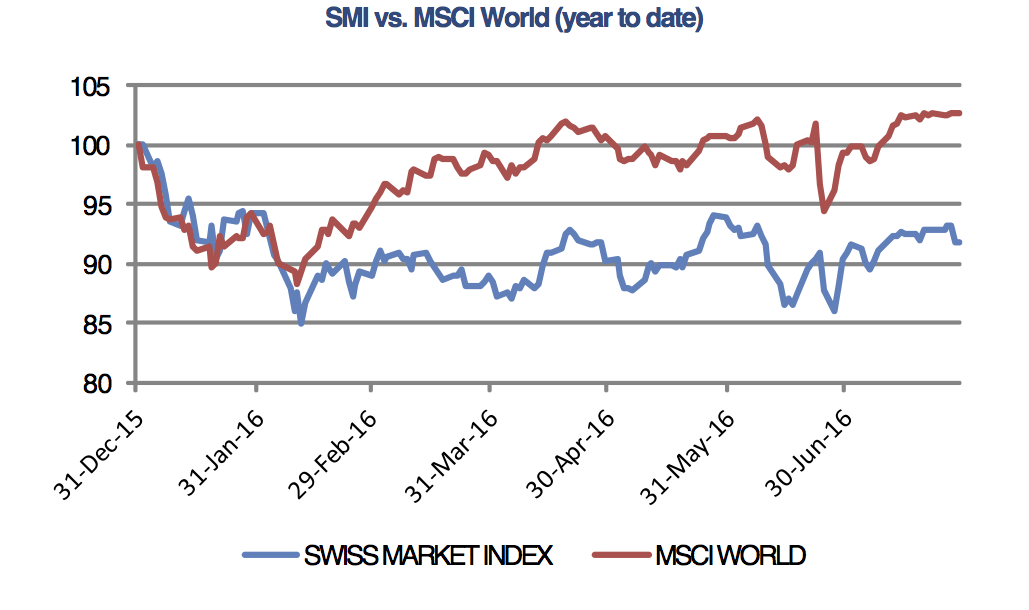Investec Switzerland. The Swiss Market Index and global stock markets failed to extend last week’s rally after the Federal Reserve and Bank of Japan left rates unchanged and gave mixed messages about the global economic outlook. © Josefkubes | Dreamstime.com Japanese shares received a short-term boost after Prime Minister Shinzo Abe’s announced plans of a 28 trillion yen (5 billion) economic stimulus drive, including a 13 trillion yen fiscal spending package for national and local governments on Wednesday. However, the Bank of Japan failed to match the measures on Friday, announcing that its government-bond buying target and policy interest rate would remain unchanged and instead opted to increase its exchange-traded fund purchases. The yen and stocks markets fluctuated on the news. In the US, Federal Reserve policy makers stopped short of signaling a September rate hike on Wednesday but declared, in their statement, that near-term risks to the outlook have diminished although inflation still remains low. Focus turns to GDP numbers which are due for release later on Friday. In Switzerland the UBS consumption indicator advanced 10 points in June to 1.34 as the tourism industry and trade picked up. Second quarter earnings season is underway and surprising overall slightly on the upside.
Topics:
Investec considers the following as important: Business & Economy, Editor's Choice, SMI, Swiss stock market
This could be interesting, too:
Investec writes The global brands artificially inflating their prices on Swiss versions of their websites
Investec writes Swiss car insurance premiums going up in 2025
Investec writes The Swiss houses that must be demolished
Investec writes Swiss rent cuts possible following fall in reference rate
The Swiss Market Index and global stock markets failed to extend last week’s rally after the Federal Reserve and Bank of Japan left rates unchanged and gave mixed messages about the global economic outlook.

© Josefkubes | Dreamstime.com
Japanese shares received a short-term boost after Prime Minister Shinzo Abe’s announced plans of a 28 trillion yen ($265 billion) economic stimulus drive, including a 13 trillion yen fiscal spending package for national and local governments on Wednesday. However, the Bank of Japan failed to match the measures on Friday, announcing that its government-bond buying target and policy interest rate would remain unchanged and instead opted to increase its exchange-traded fund purchases. The yen and stocks markets fluctuated on the news.
In the US, Federal Reserve policy makers stopped short of signaling a September rate hike on Wednesday but declared, in their statement, that near-term risks to the outlook have diminished although inflation still remains low. Focus turns to GDP numbers which are due for release later on Friday.
In Switzerland the UBS consumption indicator advanced 10 points in June to 1.34 as the tourism industry and trade picked up.
Second quarter earnings season is underway and surprising overall slightly on the upside. Credit Suisse Group AG reported this week that the bank had returned to profit in the second quarter, with all operating units contributing to its first positive result since CEO Tidjane Thiam set out to reinvent the Swiss bank. However, the bank’s revenue tumbled by 27%, operating expenses fell to the lowest in more than two years and the lender’s core capital ratio increased. UBS Group AG also published results this week, its profit slipped in the second quarter as both wealth management and investment banking generated less revenue during a rocky period for markets.
Investors remain nervous about European financials ahead of the publication due for release late on Friday of “stress tests” on the continent’s biggest lenders. The fear is that a poor set of results could dampen the recent lending revival in a region already at risk from slowing growth and the fallout from Brexit.






